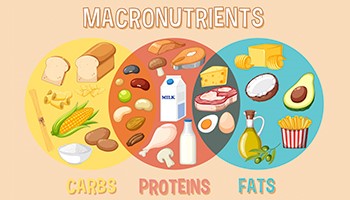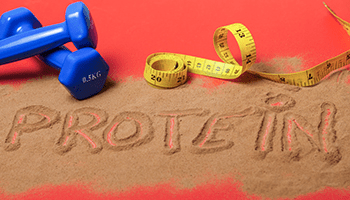Everything You Need to Know About the Importance of Meal Planning for Weight Loss

After spending a whole day working whether it was physical labour or mental it becomes extremely difficult to get back home and push yourself to whip up a meal much less a healthy one, so we tend to lean on food deliveries with the least wait time or reheat instant food.
This scenario is all too relatable and very valid, however not sustainable as the processed foods and empty calories start catching up to you and cause sudden weight gain and other health issues.
But we aren’t here to shame you for these choices, instead provide a solution that is easy, affordable and healthy.
What is meal planning?
If you haven’t come across one of the thousand addictive videos of “meal prepping” on your social media feeds then let us decode it for you; meal planning or meal prepping as most commonly known is a practice of preparing meals ahead of time, like a week in advance to save you time, money and stress of worrying about your next meal.
There are three types of meal preps:
- Individual meals: not everyone likes the same meal this ensures every individual in the household has something prepped for themselves as per their choice.
- Batch meal prep: cooking a huge quantity of a single ingredient meal or component to last through the week.
- Full-course meals– while most of the meal preps are single container foods, full-course meals are preps like curries, rice-based dishes etc
A study found that meal planning is associated with a healthier diet and reduced obesity and it could potentially help in weight loss and weight management. (1)
It is easier to control your portion sizes, and ingredients and keep track of macros and calories when you know exactly what you will be eating the following week.
Tips to meal prep for weight loss
High-quality ingredients
Before getting into cooking the meals you need to first prepare all the raw ingredients, and this is a crucial step as these ingredients will be your source of nutrients, minerals and vitamins.
Things to avoid buying when meal prepping for weight loss:
- Food products with added sugars such as high fructose corn syrup, maple syrup, and agave nectar can cause weight gain
- Refined carbs like pasta, white bread, sugary snacks
- Processed meats
- High-fat dairy like cheese cream and whole milk
- Saturated and trans fats
- High-sodium foods like canned soups, and condiments
- Artificial sweeteners like sucralose, aspartame, and saccharin can hinder your body’s natural ability to regulate blood sugar and insulin levels.
Instead shop for whole foods such as:
- Leafy greens
- Berries
- Seeds and nuts
- Cruciferous vegetables
- Sweet potatoes
- Herbs and spices
- Fatty fish
- Eggs
Building Custom Meals
Once you’ve bought yourself high-quality ingredients, you can start building meals around them that are suitable to your palate.
It is important to remember that your meals need to fit your calorie intake for the day, low calorie diets have a significant effect on weight loss. (2)
Prepare meals that are quick to cook and easy to store and that are appetising and delicious.
One way to be motivated is by recreating popular junk foods into healthier and low-calorie versions of them. For example, if you love wraps you can prep them with whole wheat tortillas and add Greek yogurt, veggies and grilled chicken as filling. It’s high in protein and can be frozen once wrapped well in foil tucked into a ziplock bag.

Incorporate technology
If you are someone who has a hard time being organised or keeping track of stuff then an app can provide you support and relief.
There are plenty of softwares that are specifically designed to help you curate meals based on the availability of ingredients, allergies, and preferences.
This will not only reduce the stress of deciding a menu but you will build consistent data on what your likes and preferences are to refer back to it as and when needed.
Ensure variety
If you think weight loss is about eating the same salad with protein over & over again then you are wrong!
You don’t have to lose your joy of eating to achieve weight loss but rather choose better recipes to ensure the meals don’t become mundane and boring.
This would be a good time to dive into “YouTube” where you will find endless resources to create a better menu or if you’re more traditional you can give some acclaimed cookbooks a try that are specifically curated with weight loss recipes.
Snacks
Snacks are a great relief from the long gaps between meals.
So, do not feel guilty if you start feeling famished between your packed and portioned meals. Instead opt for healthier options like veggies and hummus, or sweet potato fries.
As long as you keep your snacks in moderation your weight loss prep won’t be affected.
Storing & Reheating safely
Storing
- Freezing: there are containers available in markets specifically for storing meal prep that are airtight and shallow.
- Refrigeration: the food needs to be refrigerated at 4*c or below. This is essential for perishables like dairy, meat, and eggs.
- Labelling: label all your containers with date, content and reheating instructions to ensure safe reheating.
Reheating
- Reheat to 165*F (74*C)
- Do not thaw, refreeze or reheat this will lead to bacterial growth
- Check for spoilage, there could be a possibility the food has gone bad or grown mold, check and discard if found spoiled.
Conclusion
Meal planning is a great way to ensure you are eating healthy home-cooked food, with ingredients that are tailored to your weight loss diet.
There may be some trial and error at the beginning but once you get the hang of it, you will get used to the cooking and storing process.
If you need recipes that are more accurately based on your diet and calorie intake refer to a healthcare provider.
FAQs
1. How does meal planning help with weight loss?
Meal planning can help you follow a healthy diet plan and lose weight by:
- Controlling and portioning your food intake
- Saves time and money
- Reduces the stress of cooking every day
- Increases the variety of your food intake
- Improves your diet
2. Why is meal planning important?
Some of the advantages of healthy foods & meal planning:
- Constructing a well-thought-out weekly diet plan
- Saving time by eliminating cooking for the week
- Saves money as you eat more home-cooked meals
3. What is the need for meal planning?
Meal planning sets you up for the week and reduces the stress of cooking every day after a long day and with portions already packed you won’t overeat and stay in your calorie deficit.
4. What are the principles of meal planning?
The principles of meal planning are:
- They need to be nourishing and filling
- Well-balanced with carbs, protein and nutrients
- Should include a good variety of foods
- Moderately portioned





